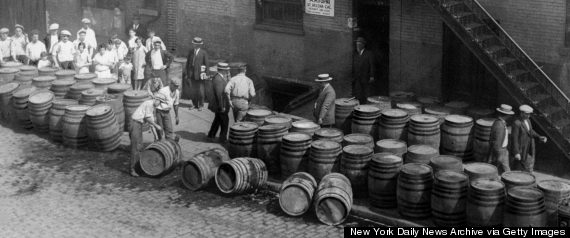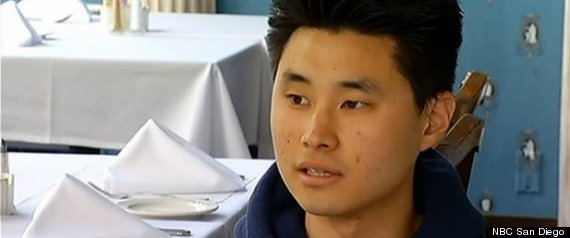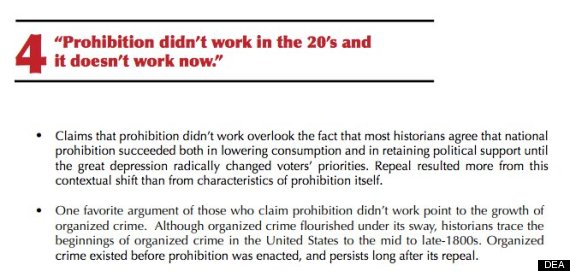
12 Of The Sketchiest Things The DEA Has Done While Waging The War On Drugs
This is part one of a two-part series. Read part two here.
The Drug Enforcement Administration was established under the Justice Department in 1973 by President Richard Nixon. Its mission was to keep the nation off and away from drugs, which, at least according to the White House, were a moral evil and catalyst of criminal behavior. The agency was formed just two years after Nixon launched what became known as the "war on drugs." Congress and the rest of the nation remained convinced that the scourge of narcotics and drug abusers -- and perhaps particularly those who were young, poor or black -- was pounding at the gates. Over the next four decades, with most drug policy now firmly in the grips of law enforcement officials, the DEA's annual budget saw a fortyfold increase, going from a paltry $75 million to nearly $3 billion in 2014.
With more than 11,000 employees and a host of responsibilities, the agency's activity has expanded worldwide, all the while attracting scrutiny from critics of the drug war who contend that the DEA is an ineffective agency that uses controversial tools to enforce often misguided or unjust federal drug laws.
The catalog of controversies below helps explain why the public has often questioned the DEA's priorities, as well as the methods it employs to advance them. While the DEA does its best to keep many of its dealings out of the public eye -- it regularly claims secrecy is imperative to the success of its anti-drug operations -- here are some of the most sketchy, messed up things that we know it has done:
The DEA claimed Prohibition was a success.

Most historians believe the "noble experiment" of alcohol prohibition in the 1920s backfired, creating a myriad of negative unintended consequences and serving as a lesson about the hazards of governing public morals. The DEA, however, tells a different story. In 2010, the DEA and the International Association of Chiefs of Police released a report providing key arguments against drug legalization. In one passage, first highlighted by the Republic Report, the report set out to combat what it called the "myth" that "prohibition didn’t work in the 20’s and it doesn’t work now." Its main argument was that the 18th Amendment didn't go far enough to restrict the manufacturing and consumption of alcohol at the onset of Prohibition.
Citing figures that suggest there was a decline in alcohol use during that 13-year period -- statistics that are regularly contested and impossible to verify -- the document argues that Prohibition was a successful policy. The report also downplayed the secondary effects of banning alcohol, such as the precipitous rise of organized crime, at one point suggesting that those effects were increasing before the enactment of Prohibition.
A sample of the DEA's report.
Unsurprisingly, the report made no mention of the clear negative parallels between early-20th century Prohibition laws and today's laws that target drugs. In both cases, strict prohibition has taken away resources from treatment for addiction and abuse, overburdened court systems and jails, fostered corruption in law enforcement, propped up organized crime and even, some argue, created a damaging disrespect for the rule of law. In return, these incredibly costly enforcement experiments have largely failed to actually limit people's consumptive habits.
The DEA imprisoned an innocent suspect in a holding cell for five days without food or water.
In 2012, 24-year-old Daniel Chong was detained by DEA agents in San Diego after his friend's house was targeted by a drug raid. Chong was told there were no plans to charge him and that he'd be released the same day. But he wasn't released, and agents who heard or saw him over the next five days did nothing, each believing he was somebody else's responsibility. Chong was trapped in a windowless 5-by-10 enclosure without food or water, all for the crime of being in the wrong place at the wrong time. When he was finally discovered, he was incoherent and required medical attention. He said he'd drank his own urine to survive, and at one point attempted suicide. At some point, Chong began to carve "sorry mom" into his arm with broken glass from his eyeglasses, which he ate before being released.

Chong, seen during an interview with NBC San Diego in 2012.
The ordeal ultimately ended in a $4.1 million settlement for Chong. Shortly thereafter, the Justice Department's Office of the Inspector General released a report excoriating top DEA officials not only for the incident itself, but also for failing to immediately report it to their office.
A DEA agent shot himself in a classroom full of children.
Anyone who's spent too much time watching viral videos is familiar with this one:
In April 2004, DEA agent Lee Paige was giving a gun safety demonstration to a classroom full of children when he delivered this now-famous line: "I am the only one in the room professional enough, that I know of, to carry this Glock 40." Moments later, he shot himself in the foot. Rather than take the embarrassing incident in stride (or limp?), Paige eventually sued the DEA, claiming the agency had released the video footage of him. After a prolonged legal battle, he lost the suit.
CONTINUE READING....VIEW VIEODS AND PHOTOS.......
http://www.huffingtonpost.com/2014/10/23/dea-controversies_n_5992324.html?1414064988

